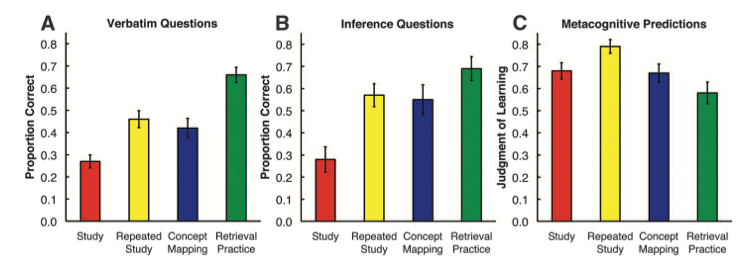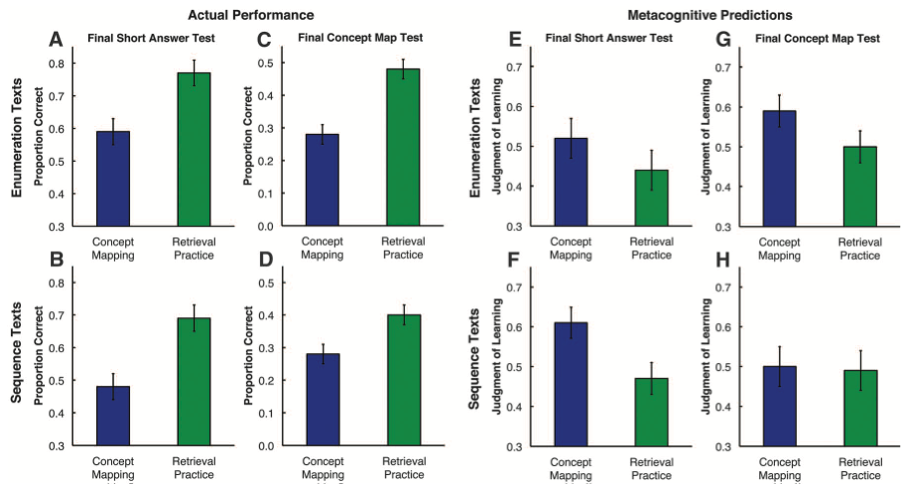Andyʼs working notes
About these notesKarpicke, J. D., & Blunt, J. R. (2011). Retrieval Practice Produces More Learning than Elaborative Studying with Concept Mapping. Science, 331(6018), 772–775
Experiment comparing Concept mapping (invoking Elaborative encoding) vs. retrieval practice (invoking Testing effect) on memory. Like Karpicke and Smith (2012), this paper is also interested in whether the effects of retrieval practice seem to be due to elaborative encoding, or whether there’s some other process going on.
The experiment also demonstrates that retrieval practice promotes learning of conceptual knowledge—not just declarative knowledge.
Retrieval practice produced better improved performance on various measures (recall, inference, short answer, even concept mapping!) compared to elaborative encoding.
Worth noting that students expected concept mapping to be more effective than retrieval practice.
Unfortunately, they don’t clearly document exactly what the students were studying, other than it was a “science text” and that in the second experiment, they used texts with enumeration structures and sequence structures.


Some theorizing on mechanism:
There are several theoretical reasons to ex- pect that the processes involved in retrieving knowledge differ fundamentally from the pro- cesses involved in elaborative studying. During elaboration, subjects attain detailed representa- tions of encoded knowledge by enriching or increasing the number of encoded features, but during retrieval, subjects use retrieval cues to reconstruct what happened in a particular place at a particular time. In free recall, subjects must establish an organizational retrieval structure (23) and then discriminate and recover individ- ual concepts within that structure (24). Retrieval practice likely enhances the diagnostic value of retrieval cues, which refers to how well a cue spec- ifies a particular piece of knowledge to the exclu- sion of other potential candidates (25–27). Rather than multiplying or increasing the number of encoded features, which occurs during elaboration, retrieval practice may improve cue diagnosticity by restricting the set of candidates specified by a cue to be included in the search set (23, 25–27). Thus, mechanisms involved in retrieving knowledge play a role in producing learning.